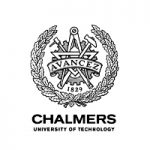项目介绍
Job Description
HybridLabs is an academic-industrial consortium of 37 partners that will accelerate innovations in offshore renewable energy through data-driven hybrid labs. The scale of infrastructure and innovations in HybridLabs is unique. The collaborative research tasks involve the connection of hybrid experimental facilities, including advanced simulators and offshore demonstration sites, which learn from each other using new data- and physics-driven approaches. This Dutch nationwide infrastructure will be used to test innovations, such as new monitoring techniques, nature-strengthening offshore renewables, and new control and design strategies for floating installation techniques.
The PhD position focuses on robust adaptive equivalent models of offshore networks for dynamic stability studies. It also concerns with the development of algorithms to enable self-calibrated and unsupervised model updates and improvements. The deployment of data and adaptive models for the enhancement of functionalities for situational awareness and robust control design in integrated offshore-onshore systems falls also within the research scope. The PhD research activities will be based on offline steady-state and dynamic simulations, and real-time digital simulation for laboratory scale experiments, data analytics, multi-variable non-linear control, and advanced optimization methods.
This PhD position, starting from June/July 2025, offers a great opportunity to work in a multidisciplinary team and with industrial partners. In addition, you will be organising cocreation workshops and meetings and will report your progress and findings to the stakeholders. You will, of course, publish papers and disseminate your findings and knowledge in relevant communities.
Your research is part of a multi-disciplinary drive towards stable, reliable sustainable energy systems. Which is why you’ll work closely with your colleagues in the Dynamic Stability of Sustainable Electrical Power Systems research group. The group belongs to the Intelligent Electrical Power Grids (IEPG) Section of the Electrical Sustainable Energy (ESE) Department, which is part of the Electrical Engineering, Mathematics,and Computer Science (EEMCS) Faculty. We are an innovation-driven and multidisciplinary team of early-stage and senior professors, postdocs, PhDs, and MSc researchers with different cultural backgrounds. You will be coaching and mentoring master students. Fostering a synergetic, open-minded, and win-together culture, we regularly interact and share views, unlocking opportunities, forms of incubation, and deployment of knowledge and ground-breaking developments. We also stimulate a healthy and inclusive work environment in which you can bring out the best in yourself. And we value autonomy, professionalism, and a balanced work-life approach.
The research in the Department of Electrical Sustainable Energy is inspired by the technical, scientific, and societal challenges originating from the transition towards a more sustainable society and focuses on four areas:
- DC Systems, Energy Conversion and Storage (DCE&S)
- Photovoltaic Materials and Devices (PVMD)
- Intelligent Electrical Power Grids (IEPG)
- High Voltage Technologies (HVT)
The department owns a large ESP Laboratory assembling High Voltage testing, DC Grids testing environment, and large RTDS that is actively used for real-time simulation of future electrical power systems, AC and DC protection and wide-area monitoring and protection. The Intelligent Electrical Power Grid (IEPG) group, headed by Professor Peter Palensky, works on the future of our power system.
The TNO Wind Energy research group (cooperation partner) works on challenges related to the acceleration of wind energy deployment and its integration in the energy system. Together with WUR (Wageningen University & Research), TNO operates the SWITCH fieldlab for research and testing of renewable energy integration solutions.
Job requirements
You thrive on conducting independent research, while being part of a team working together on stable energy systems meeting the demands of an accelerated energy transition. To help achieve our goals, you have the flexibility to align your research and are able to collaborate to work towards solutions. You harness your communication and organisation skills, convincing and motivating your partners and your team to achieve tangible results. You also enjoy interacting with and coaching master students.
You also have:
- MSc degree in Electrical Power Systems or Power Electronics.
- Background in power system stability and control.
- Background in modelling and control of power electronic interfaced devices.
- Advanced user skills in modelling and simulation for stability study of power electronic dominated systems (e.g. by using examples tools like Digsilent Power Factory, RTDS). Besides, skills in advanced scripting (e.g. by using Python) for automated parametrization of models and simulations, as well as for performinfg optimization, data analytics, and experimental validaton.
- An affinity with teaching and guiding students.
- Ability to work in a team, take initiative, good time management, open to feedback and eager to continously improve, be results oriented and systematic.
- A good command of English, because you will be working in an international environment. A command of Dutch would help you communicate with industrial partners and students.
TU Delft (Delft University of Technology)
Delft University of Technology is built on strong foundations. As creators of the world-famous Dutch waterworks and pioneers in biotech, TU Delft is a top international university combining science, engineering and design. It delivers world class results in education, research and innovation to address challenges in the areas of energy, climate, mobility, health and digital society. For generations, our engineers have proven to be entrepreneurial problem-solvers, both in business and in a social context.
At TU Delft we embrace diversity as one of our core values and we actively engage to be a university where you feel at home and can flourish. We value different perspectives and qualities. We believe this makes our work more innovative, the TU Delft community more vibrant and the world more just. Together, we imagine, invent and create solutions using technology to have a positive impact on a global scale. That is why we invite you to apply. Your application will receive fair consideration.
Challenge. Change. Impact!
Faculty of Electrical Engineering, Mathematics and Computer Science
The Faculty of Electrical Engineering, Mathematics and Computer Science (EEMCS) brings together three scientific disciplines. Combined, they reinforce each other and are the driving force behind the technology we all use in our daily lives. Technology such as the electricity grid, which our faculty is helping to make completely sustainable and future-proof. At the same time, we are developing the chips and sensors of the future, whilst also setting the foundations for the software technologies to run on this new generation of equipment – which of course includes AI. Meanwhile we are pushing the limits of applied mathematics, for example mapping out disease processes using single cell data, and using mathematics to simulate gigantic ash plumes after a volcanic eruption. In other words: there is plenty of room at the faculty for ground-breaking research. We educate innovative engineers and have excellent labs and facilities that underline our strong international position. In total, more than 1000 employees and 4,000 students work and study in this innovative environment.
Click here to go to the website of the Faculty of Electrical Engineering, Mathematics and Computer Science.
Conditions of employment
Doctoral candidates will be offered a 4-year period of employment in principle, but in the form of 2 employment contracts. An initial 1,5 year contract with an official go/no go progress assessment within 15 months. Followed by an additional contract for the remaining 2,5 years assuming everything goes well and performance requirements are met.
Salary and benefits are in accordance with the Collective Labour Agreement for Dutch Universities, increasing from € 2901 per month in the first year to € 3707 in the fourth year. As a PhD candidate you will be enrolled in the TU Delft Graduate School. The TU Delft Graduate School provides an inspiring research environment with an excellent team of supervisors, academic staff and a mentor. The Doctoral Education Programme is aimed at developing your transferable, discipline-related and research skills.
The TU Delft offers a customisable compensation package, discounts on health insurance, and a monthly work costs contribution. Flexible work schedules can be arranged.
For international applicants, TU Delft has the Coming to Delft Service. This service provides information for new international employees to help you prepare the relocation and to settle in the Netherlands. The Coming to Delft Service offers a Dual Career Programme for partners and they organise events to expand your (social) network.
Additional information
If you would like more information about this vacancy or the selection procedure, please contact Dr. Jose Rueda Torres, via j.l.ruedatorres@tudelft.nl.
Application procedure
Are you interested in this vacancy? Please apply no later than 20 Feb 2025 via the application button and upload the following documents:
Please submit:
- Application that explains your personal motivation in pursuing a PhD and fit to the job requirements,
- Your curriculum vitae (CV) with a list of your publications,
- A list of three academic and/or industry references that we can contact. Incomplete applications will not be considered.
You can address your application to Dr. Jose Rueda Torres.
The deadline for applications is February 20, 2025 at 23:59 CET. The candidates will be screened as the applications arrive and the promissing candidates will be shortlisted and contacted before the closing of this post.
If you are interested, do not wait to apply, we are happy to schedule an interview while the response period is running.
Doing a PhD at TU Delft requires English proficiency at a certain level to ensure that the candidate is able to communicate and interact well, participate in English-taught Doctoral Education courses, and write scientific articles and a final thesis. For more details please check the Graduate Schools Admission Requirements.
Please note:
- You can apply online. We will not process applications sent by email and/or post.
- A pre-employment screening can be part of the selection procedure.
- For the final candidates, a knowledge security check will be part of the application procedure. For more information on this check, please consult Chapter 8 of the National Knowledge Security Guidelines. We carry out this check on the basis of legitimate interest.
- Please do not contact us for unsolicited services.
相关项目推荐
KD博士实时收录全球顶尖院校的博士项目,总有一个项目等着你!





